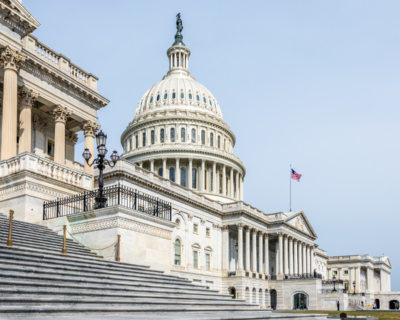The Stealth Moratorium
Regulatory barriers and legal uncertainties keep deepwater operators on hold.
On June 22nd Judge Martin Feldman struck down the moratorium on American deepwater drilling. Yet not one of the 33 affected rigs has returned to work, nor are any set to return in the next few weeks.
Shallow-water operators, who drill in depths of less than 500 feet of water, are just starting to return after resubmitting to the permit process. However, these operators provide only 20 percent of the Gulf of Mexico oil supply. Department of the Interior Secretary Ken Salazar remains resolutely against deepwater drilling and is appealing Judge Feldman’s injunction. More importantly, DOI has already begun imposing heightened regulatory requirements, which may effectively bypass the ruling by making it impossible to begin drilling.
Amidst this uncertainty, the Gulf’s deepwater operators are unwilling to resume work. As Don Briggs, president of the Louisiana Oil and Gas Association, explains, “these are billion dollar projects we’re talking about. Before they can resume work, the operators need certainty regarding whether they can continue in a long-term manner… Threats of a new moratorium amount to a de facto moratorium, given that they create a risk that work will have to be curtailed again.”
Deepwater drilling in the Gulf provides 25 percent of the America’s oil supply. The scale and logistical challenges of these operations mean that even if operators wanted to return, to do so requires weeks of preparation. According to Chris John, president of the Mid-Continent Oil and Gas Association, “you can’t just turn [the industry] off and on like a water faucet… In fact, some operators are probably still going through the winding down process [almost a month after the moratorium directive].”
Even if courts uphold the injunction against the moratorium, the Federal government can create regulatory barriers to impede or delay the return of deepwater drilling. Already DOI’s Minerals Management Service has mandated certification from chief executives “that they are knowledgeable of all operating regulations” of the relevant federal code and are compliant with its more than 1,700 sections.
Additionally, every drilling operation must have an “independent third party conduct a detailed physical inspection and design review of the BOP” (blowout preventer). Given how new the latter stipulation is, however, drilling companies are unsure as to who constitutes an independent third party. Companies are likely to resist these inspections and reviews, so long as engaging in them would create the risk of further legal entanglement.
The Departments of Justice and the Interior are challenging Judge Feldman’s decision with the Fifth Circuit Court of Appeals and a hearing has been scheduled for July 8. From there it could be appealed to the US Supreme Court. While the process would likely be expedited, it is unclear how long it will take to come to a final resolution. Ben Lieberman, attorney and Senior Policy Analyst for the Heritage Foundation, believes “chances are good that the temporary relief will be upheld on a permanent basis. The real risk to the industry is the delay and uncertainty while the case works its way through the court.”
Fergus Hodgson is the capitol bureau reporter with the Pelican Institute for Public Policy. He can be contacted at fhodgson@pelicanpolicy.org, and one can follow him on twitter.




